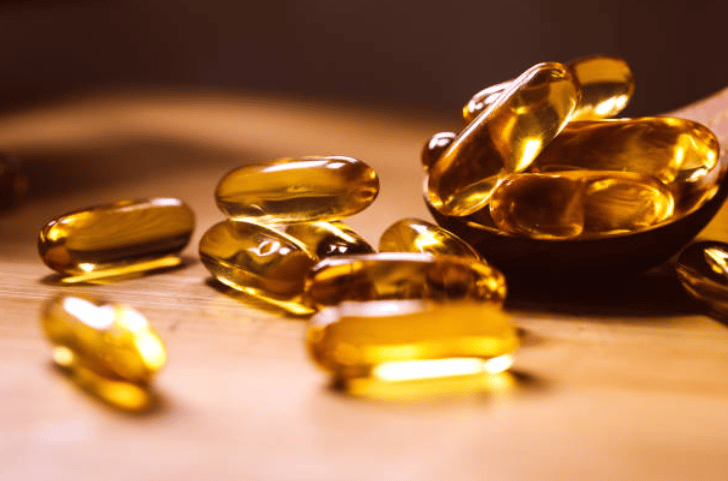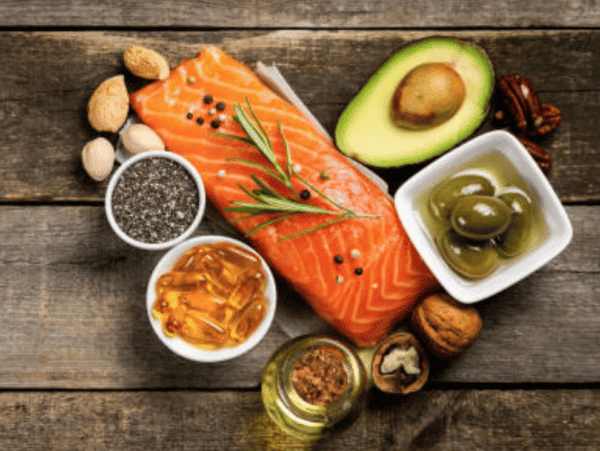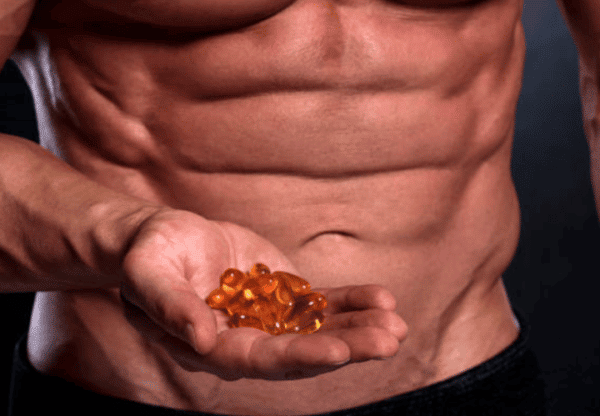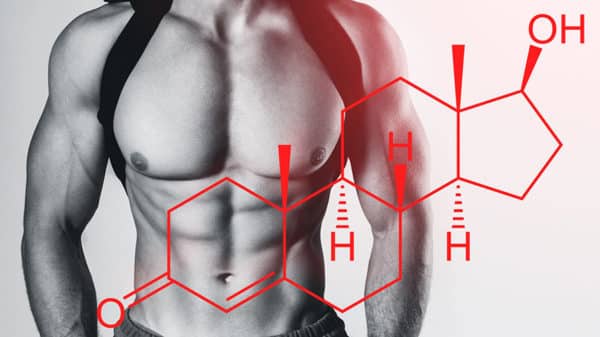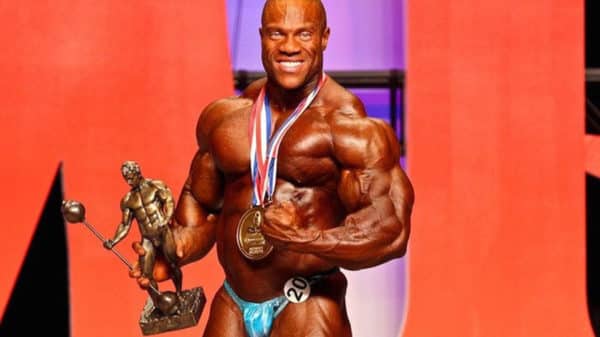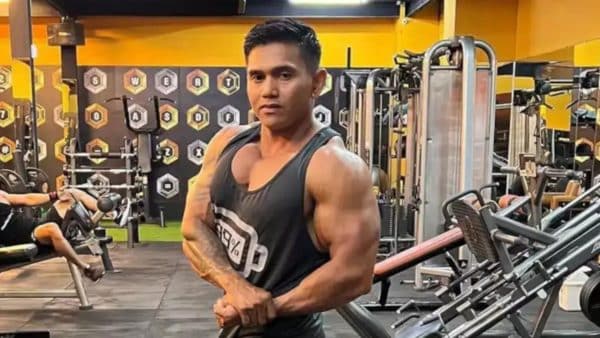What exactly is omega 3?
Omega 3 are fatty acids essential to our body. They come in several forms:
- Alpha-linolenic acid (ALA): ALA is a so-called essential omega-3. The body cannot produce it naturally. It is therefore necessary to consume it through certain foods or food supplements.
- Eicosapentaenoic acid (EPA): EPA is a so-called long-chain omega, i.e. one that can be produced in very small quantities by the human body. It is therefore necessary to supplement its intake.
- Docosahewaenoic acid (DHA): DHA is also a long-chain omega found in the membranes of neurons and in the retina of the eyes. It therefore plays an essential role in brain and eye health.
What are the benefits of omega 3?
Omega 3 (fish oil) has many health benefits. Indeed, they favor the good cellular development, making the skin hydrated and elastic.
For sportsmen, they allow a better development of the muscular cells, thus bringing a better muscular growth and supports muscle recovery. In addition, they improve your health by preventing cardiovascular disease. They protect the heart thanks to its action on the reduction of triglycerides in the blood, fat that is stored by the body. They allow the decrease of the blood pressure and help to the formation of HDL called also the good cholesterol.
The omegas also take part in the loss of weight because they prevent the multiplication of the fat cells, thus making it possible to maintain the weight of the body. Finally, they are a real ally against depression, thanks in particular to EPA, which reduces anxiety states.
Why consume omega 3 in bodybuilding?
The food program is important in the practice of bodybuilding. Omega 3 are nutrients that are essential for the proper functioning of our nervous system but also for muscle gain. Indeed, they increase the ability to use fat to provide energy for muscle without gaining weight.
In addition, they allow the body to better recover muscles, avoid aches and pains. They have an action called anti-catabolic. They prevent inflammation of muscles and joints. Indeed, fatty acids have a natural anti-inflammatory property that strengthens ligaments and muscle fibers.
They also strengthen the immune system. Finally, these essential fatty acids improve heart capacity. They lower blood pressure and thin the blood. Thus, they promote sports performance and thus allow to develop more muscles.
What foods are rich in omega-3?
Nutrition is one of the pillars of the bodybuilding sport. Indeed, it allows you to reach your muscle building objectives more quickly. Thus, the meals as well as the snacks constantly provide nutrients to the metabolism with an essential caloric intake.
In order to balance the intake of macronutrientsTwo snacks should be added to the meals to ensure a constant flow of proteins, carbohydrates and fats.
In the practice of bodybuilding, nutrition is therefore an essential element for an effective practice. The weight training program must be accompanied by a balanced diet rich in omegas in particular. This is why many foods are to be favoured in the context of sports nutrition.
Macronutrients are nutrients from our food that provide energy to our body and ensure the proper functioning of its vital functions. Some are very rich in omega 3.
Here are some foods you probably already eat:
- Salmon,
- the lawyer,
- rapeseed oil and linseed oil in particular, but also rapeseed oil
- nuts and almonds,
- chia seeds,
- tuna,
- mackerel and sardines
- eggs,
- spinach...
There are of course other foods, but we are talking about the ones most commonly consumed by athletes. Those that are less dosed are oysters, mussels, sardines.
What dosage of omega 3 to consume?
There is a recommended dosage. However, with a good diet, you can have the daily dose which is between 2 to 3 grams per day.
If, for example, you eat 100 g of salmon with a salad, accompanied by a dressing with a spoonful of flaxseed oil and a few almonds as a snack, you have more than enough for the day and therefore omega supplementation is not necessary.
For example: 100 grams of salmon provide about 2.3 g of omega 3.
On the other hand, if you eat meat at all your meals, no oilseeds or avocado, it is quite possible that you will not have your daily intake. It is up to you to manage this according to your meals of the day. This is why some sportsmen and women take supplements in order not to be deficient.
A little reminder about good nutrition:
- carbohydrates, which provide the most important energy in our diet. Stored in the body as glycogen in the liver and muscles, these reserves of glycogen are then used by the body as a source of energy for the body's cells during physical effort. It is important to favour the complex proteins found in fruit oilseeds such as nuts and almonds, vegetables, legumes, cereals and rice. They are rich in vitamins and minerals as well as fibre.
- proteins, which are made up of a collection of amino acids. About 60 % of the proteins in the body are stored in the muscles. These reserves constitute building blocks for the body. Omega-rich proteins are found in meat, oily fish such as salmon, tuna, mackerel, herring, sardines and trout, and seafood. They are also found in milk and dairy products, eggs, legumes, nuts and soy products. For athletes who practice weight training, it is important to consume proteins combined with carbohydrates.
- Lipids which are fatty acids including omega 3. They are present in fatty fish which have a significant contribution in DHA and EPA, vegetable oils such as rapeseed oil, linseed oil and soybean oil which are particularly rich in ALA.
- Amino acids allow the regeneration of muscle tissue. They are an important source of energy during a bodybuilding session. They also allow the structure and maintenance of proteins in the muscles. Finally, they help in the construction of proteins and hormones such as dopamine and adrenaline which participate in the regulation of sports effort. Finally, they are important sources of energy for the muscle cells. They are notably present in chicken breast, eggs, salmon and nuts.
Thus, the practice of bodybuilding requires a varied and balanced diet, avoiding deficiencies.
It provides the body with all the nutrients necessary for the proper functioning and development of muscles, a supply of carbohydrates, proteins, lipids, amino acids and vitamin supplements.
Sport and nutrition are therefore complementary. Omega in the diet is of real interest to sportsmen and women who want to build up their muscles, providing them with all the elements necessary for optimal and lasting muscle growth.
Be careful, omega 3 capsules are not recommended for diabetics and people with hemophilia. It lowers the glycemia and increases the cholesterol. Finally, an overdose is harmful to health when taken in excess.
To benefit from a weight training and nutrition program :
Other articles to read :
How much protein should you eat per day?
Is the flexitarian diet compatible with bodybuilding?
Food supplements for bodybuilding: What are they? usefulness?

